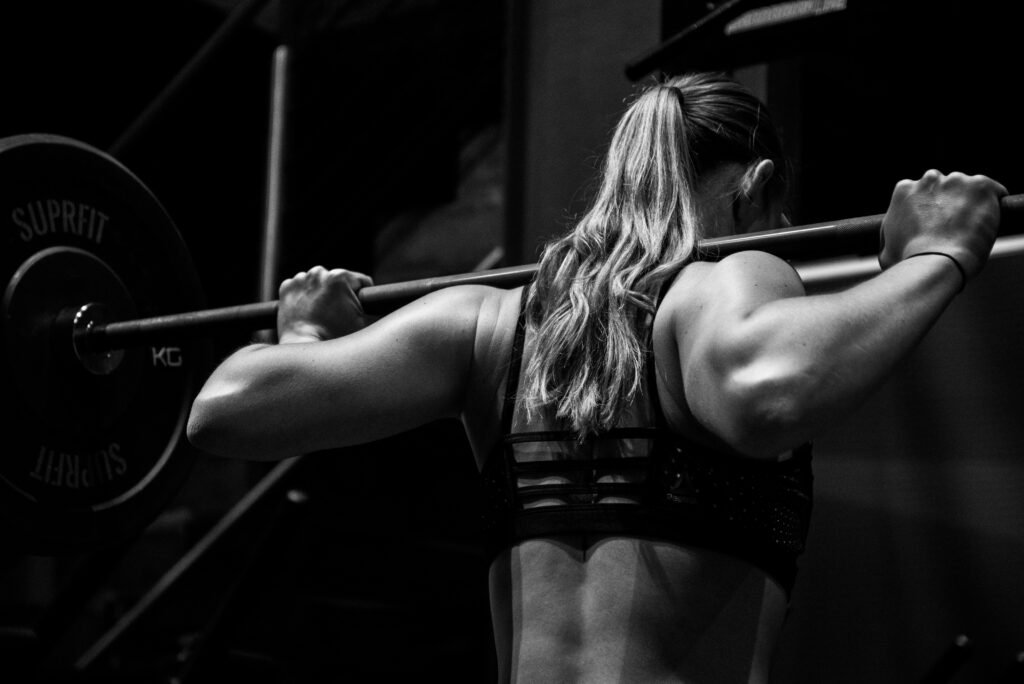Fueling Your Body Right: Post-Workout Nutrition Tips
You just finished an intense workout and now it’s time to focus on the important task of refueling your body. In this article, we will explore the essentials of post-workout nutrition, providing you with valuable tips to help optimize your recovery and fuel your body for optimal performance. From the importance of timing to the right balance of nutrients, we’ve got you covered. So, grab a glass of water and get ready to learn how to fuel your body right after a workout.

This image is property of images.unsplash.com.
Importance of Post-Workout Nutrition
When it comes to achieving your fitness goals, post-workout nutrition is crucial. Not only does it refuel your energy stores, but it also aids in muscle recovery and growth. Additionally, consuming the right nutrients after a workout can enhance your performance and reduce muscle soreness. Therefore, paying attention to what you eat and drink after a workout is of utmost importance.
Refueling Energy Stores
After a strenuous workout, your body’s energy stores become depleted. To replenish these stores, it is essential to consume the right amount and type of carbohydrates. Carbohydrates are the primary source of energy for your body, and they can be found in foods such as whole grains, fruits, vegetables, and legumes. Including these sources of carbohydrates in your post-workout meal or snack will ensure that your energy stores are refueled, allowing you to perform at your best during your next workout.
Muscle Recovery and Growth
Intense exercise can lead to microscopic damage to your muscle fibers, which is a natural part of the muscle-building process. To optimize muscle recovery and growth, you need to provide your body with an adequate amount of protein after your workout. Protein is essential for repairing and rebuilding your muscles. Lean meats, fish, seafood, dairy products, and plant-based sources such as beans and lentils are rich in protein and should be included in your post-workout meals.
Enhancing Performance
In addition to refueling energy stores and supporting muscle recovery, post-workout nutrition can also enhance your performance. Consuming the right combination of macronutrients can provide your body with the necessary fuel and nutrients to perform at its peak. Balancing your intake of protein, carbohydrates, and healthy fats will ensure that your body has the energy and building blocks it needs to excel in your workouts.
Reducing Muscle Soreness
One of the most common side effects of a challenging workout is muscle soreness. While some soreness is normal, proper post-workout nutrition can help alleviate and reduce muscle soreness. Including anti-inflammatory foods in your post-workout meals, such as turmeric, can help reduce inflammation and promote faster recovery. Additionally, staying hydrated and consuming enough electrolytes through fluids like coconut water can also aid in reducing muscle soreness.
Timing of Post-Workout Nutrition
The timing of your post-workout nutrition is just as crucial as the content of your meals. The immediate post-workout window, which typically lasts around 30 minutes to an hour after your workout, is considered the most critical time to consume nutrients. During this time, your muscles are primed to absorb and utilize nutrients efficiently. Therefore, it is recommended to have a post-workout meal or snack as soon as possible after your workout.
Immediate Post-Workout Window
Within the immediate post-workout window, it is essential to consume a combination of carbohydrates and protein. This combination helps replenish glycogen stores and initiates the muscle repair process. For example, a post-workout shake containing whey protein and a banana can provide the necessary nutrients your body needs for recovery. The protein in the shake will support muscle repair, while the carbohydrates from the banana will replenish your energy stores.
Within 2 Hours after Workout
If you are unable to consume a post-workout meal or snack immediately after your workout, it is still beneficial to do so within the next two hours. While the immediate post-workout window is optimal, your body can still benefit from nutrients consumed within this two-hour period. However, the sooner you consume your post-workout meal or snack, the better your body will be able to replenish energy stores, repair muscles, and reduce muscle soreness.

This image is property of images.unsplash.com.
Macronutrient Balance
To optimize post-workout nutrition, it is crucial to maintain a proper balance of macronutrients: protein, carbohydrates, and healthy fats. Each macronutrient plays a unique role in fueling your body and aiding in recovery.
Protein
Protein is the building block of muscles and is essential for muscle repair and growth. It is recommended to consume around 20-30 grams of protein in your post-workout meal or snack. Lean meats, such as chicken and turkey, fish and seafood, dairy products like Greek yogurt and cottage cheese, and plant-based sources like tofu and lentils are all excellent options for meeting your protein needs.
Carbohydrates
Carbohydrates are the primary source of fuel for your muscles and provide the energy your body needs to perform at its best. Including carbohydrates in your post-workout nutrition is crucial for replenishing glycogen stores and supporting muscle recovery. Whole grains, such as brown rice and quinoa, fruits, vegetables, and legumes like chickpeas and black beans, are all excellent sources of carbohydrates.
Healthy Fats
While many people may assume that fats should be avoided after a workout, healthy fats are actually essential for optimal post-workout nutrition. Healthy fats provide long-lasting energy and support hormone production. Avocados, nuts and seeds, olive oil, and coconut oil are great sources of healthy fats that can be included in your post-workout meals or snacks.
Protein-Rich Foods
Including protein-rich foods in your post-workout nutrition is crucial for muscle repair and growth. Here are some excellent sources of protein to consider:
Lean Meats
Lean meats, such as chicken, turkey, and lean cuts of beef, are excellent sources of high-quality protein. Grilled or baked chicken breast or a turkey wrap with whole grain bread can be a satisfying and protein-rich post-workout meal.
Fish and Seafood
Fish and seafood, such as salmon, tuna, and shrimp, are not only rich in protein but also provide omega-3 fatty acids, which have anti-inflammatory properties. Grilled salmon with a side of roasted vegetables or a tuna salad with whole grain crackers are delicious options for your post-workout nutrition.
Dairy Products
Dairy products like Greek yogurt and cottage cheese are packed with protein and also provide calcium for bone health. A bowl of Greek yogurt topped with mixed berries or cottage cheese with sliced fruit can be a refreshing and protein-packed post-workout snack.
Plant-Based Sources
For those following a plant-based diet or looking for alternative protein sources, there are plenty of options to choose from. Foods like tofu, tempeh, lentils, and beans are all excellent sources of plant-based protein. Adding grilled tofu to a vegetable stir-fry or enjoying a lentil salad with roasted vegetables can provide the protein your body needs after a workout.

This image is property of images.unsplash.com.
Carbohydrate Sources
Carbohydrates play a critical role in replenishing energy stores and supporting muscle recovery. Here are some healthy carbohydrate sources to consider for your post-workout nutrition:
Whole Grains
Whole grains, such as brown rice, quinoa, and whole wheat bread, are excellent sources of complex carbohydrates. These carbohydrates are digested slowly, providing sustained energy for your body. A bowl of brown rice with grilled chicken and steamed vegetables or a whole wheat wrap filled with lean protein and vegetables are nutritious post-workout meal options.
Fruits
Fruits are not only delicious but also provide simple carbohydrates, which are quickly digested and absorbed by your body. Options like bananas, berries, and oranges are rich in vitamins, minerals, and antioxidants. Enjoying a fruit salad or a smoothie made with a variety of fruits can provide the carbohydrates and hydration your body needs after a workout.
Vegetables
Vegetables are not typically thought of as carbohydrate sources, but they do contain carbohydrates, fiber, and essential vitamins and minerals. Leafy greens, like spinach and kale, are particularly beneficial due to their high nutrient content. Including a generous portion of vegetables in your post-workout meals or having a side salad with your post-workout protein is a great way to add carbohydrates to your diet.
Legumes
Legumes, such as chickpeas, black beans, and lentils, are not only protein-rich but also excellent sources of carbohydrates. They provide a good balance of protein and fiber, which can aid in muscle recovery and digestion. Incorporating legumes into your post-workout meals, such as a black bean and quinoa salad or a lentil soup with vegetables, can provide a hearty and nutritious option.
Healthy Fat Options
Including healthy fats in your post-workout nutrition is essential for long-lasting energy and overall health. Here are some healthy fat options to consider:
Avocados
Avocados are a great source of healthy fats, including monounsaturated fats. They also provide fiber, vitamins, and minerals. Adding slices of avocado to a salad or enjoying avocado toast with whole grain bread can bring healthy fats to your post-workout meal or snack.
Nuts and Seeds
Nuts and seeds, such as almonds, walnuts, chia seeds, and flaxseeds, are packed with healthy fats, protein, and fiber. They also provide vitamins and minerals that support overall health. Enjoying a handful of nuts or sprinkling seeds on top of Greek yogurt or a smoothie bowl can be a convenient and nutritious way to include healthy fats in your post-workout nutrition.
Olive Oil
Olive oil is a staple in the Mediterranean diet and is a great source of monounsaturated fats. Using olive oil as a dressing for salads or drizzling it over roasted vegetables can add a flavorful and healthy fat to your post-workout meals.
Coconut Oil
Coconut oil is another healthy fat option that provides medium-chain triglycerides, which are quickly absorbed and utilized by the body for energy. Adding a tablespoon of coconut oil to a protein smoothie or using it as a cooking oil for stir-frying vegetables can infuse your post-workout nutrition with the benefits of coconut oil.
Hydration
Proper hydration is often overlooked but is a critical component of post-workout nutrition. Staying hydrated helps maintain optimal performance, aids in digestion and nutrient absorption, and ensures proper muscle function. Here are some hydrating options to consider:
Water
Water should be your go-to hydrating option before, during, and after your workout. It is essential to replace the fluids lost through sweat during exercise. Make sure to drink enough water throughout the day and especially after your workout to rehydrate your body.
Electrolyte Drinks
During intense workouts, you may lose not only water but also important electrolytes such as sodium, potassium, and magnesium. Electrolyte drinks or sports drinks can be beneficial in replenishing these electrolytes. However, it’s important to choose those without added sugars or artificial ingredients.
Coconut Water
Coconut water is a natural and hydrating alternative to sports drinks. It is naturally rich in electrolytes, including potassium, making it an excellent option for rehydration after a workout. Enjoying a refreshing glass of coconut water can provide the necessary hydration your body needs.
Supplements
While a well-balanced diet should provide most of the nutrients your body needs, certain supplements can be beneficial in supporting your post-workout nutrition. Here are some common supplements to consider:
Whey Protein Powder
Whey protein powder is a popular supplement among athletes and fitness enthusiasts. It is a convenient way to increase your protein intake after a workout, especially for those who struggle to consume enough protein through whole foods. Whey protein powder can be mixed with water or milk to create a quick and easy post-workout shake.
Branched-Chain Amino Acids (BCAAs)
BCAAs are a group of essential amino acids that are particularly important for muscle recovery and growth. They can be consumed in supplement form and are often found in powdered or capsule form. Adding BCAAs to your post-workout routine may help enhance muscle recovery and reduce muscle soreness.
Creatine
Creatine is a naturally occurring compound found in muscle cells and is commonly used as a supplement to enhance athletic performance. It can help increase muscle strength, power, and endurance, making it a popular choice among strength athletes. Adding creatine to your post-workout routine may support muscle recovery and growth.
Turmeric
Turmeric contains a compound called curcumin, which has potent anti-inflammatory properties. Consuming turmeric or curcumin supplements can help reduce inflammation and alleviate muscle soreness after intense workouts. Adding turmeric to your post-workout meals or incorporating curcumin supplements into your routine may aid in recovery.
Avoiding Common Pitfalls
While understanding the importance of post-workout nutrition is key, it is equally important to avoid common pitfalls that can hinder your progress. Here are some pitfalls to avoid:
Skipping Post-Workout Nutrition
One of the biggest mistakes people make is skipping post-workout nutrition altogether. After a workout, your body is primed for nutrient absorption, and failing to provide it with the necessary nutrients can hinder recovery and progress. Make sure to prioritize post-workout nutrition by planning and preparing your meals or having healthy snacks readily available.
Relying Too Heavily on Supplements
While supplements can be useful in supporting your post-workout nutrition, they should not be relied upon as a substitute for whole foods. Whole foods offer a wide range of nutrients and benefits that cannot be fully replicated by supplements alone. Always prioritize a well-balanced diet with real, nutrient-rich foods.
Neglecting Hydration
Hydration is often overlooked but is crucial for optimal performance and recovery. Make sure to drink enough water before, during, and after your workout to replace lost fluids. Neglecting hydration can lead to decreased performance, muscle cramps, and other negative effects on your body.
Not Balancing Macronutrients
A common mistake is focusing solely on one macronutrient, such as protein, and neglecting the others. Balancing protein, carbohydrates, and healthy fats is essential for optimal post-workout nutrition. Make sure to include all three macronutrients in your meals or snacks to provide your body with the necessary fuel and building blocks for recovery.
Meeting Individual Needs
Every person is unique, and their post-workout nutrition needs may vary based on factors such as metabolism, fitness goals, and dietary restrictions. It is essential to meet your individual needs when it comes to post-workout nutrition. Here are some guidelines to consider:
Consulting a Registered Dietitian
If you have specific dietary concerns, goals, or restrictions, consulting a registered dietitian can be extremely beneficial. A registered dietitian can help create a personalized post-workout nutrition plan that aligns with your needs and goals. They can also provide guidance on portion sizes, food choices, and supplementation, ensuring you are getting the most out of your post-workout nutrition.
Adjusting for Specific Goals
Your post-workout nutrition may vary depending on your specific fitness goals. For example, someone looking to lose weight may need to focus more on portion control and include a balance of macronutrients. On the other hand, someone aiming to build muscle may require a higher protein intake. Consider your goals and adjust your post-workout nutrition plan accordingly.
Considering Allergies and Dietary Restrictions
If you have allergies or dietary restrictions, it is important to find suitable alternatives and ensure that your post-workout nutrition meets your specific needs. For example, if you are lactose-intolerant, you can opt for lactose-free dairy products or plant-based protein sources. Always read labels and consult with a healthcare professional if you have any concerns or questions.
In conclusion, post-workout nutrition plays a vital role in refueling energy stores, aiding in muscle recovery and growth, enhancing performance, and reducing muscle soreness. By understanding the importance of post-workout nutrition, timing your meals or snacks appropriately, and focusing on a balanced intake of macronutrients, you can optimize your recovery and achieve your fitness goals. Remember to stay hydrated, consider supplements when necessary, avoid common pitfalls, and meet your individual needs through consultation with a registered dietitian and adjustments based on your goals and dietary restrictions. By fueling your body right with post-workout nutrition, you are setting yourself up for success in your fitness journey.



